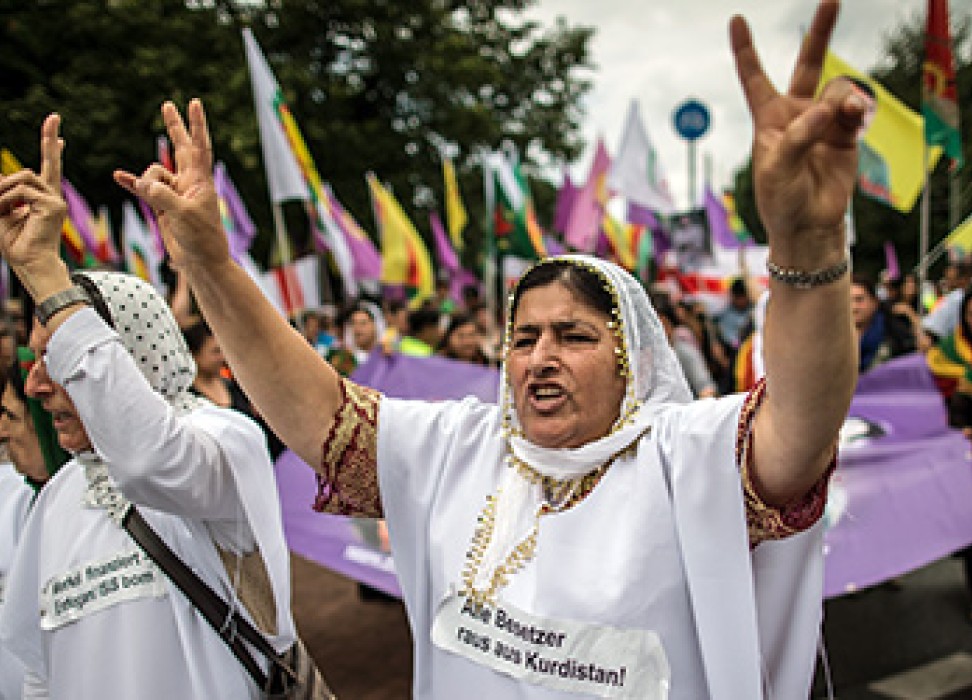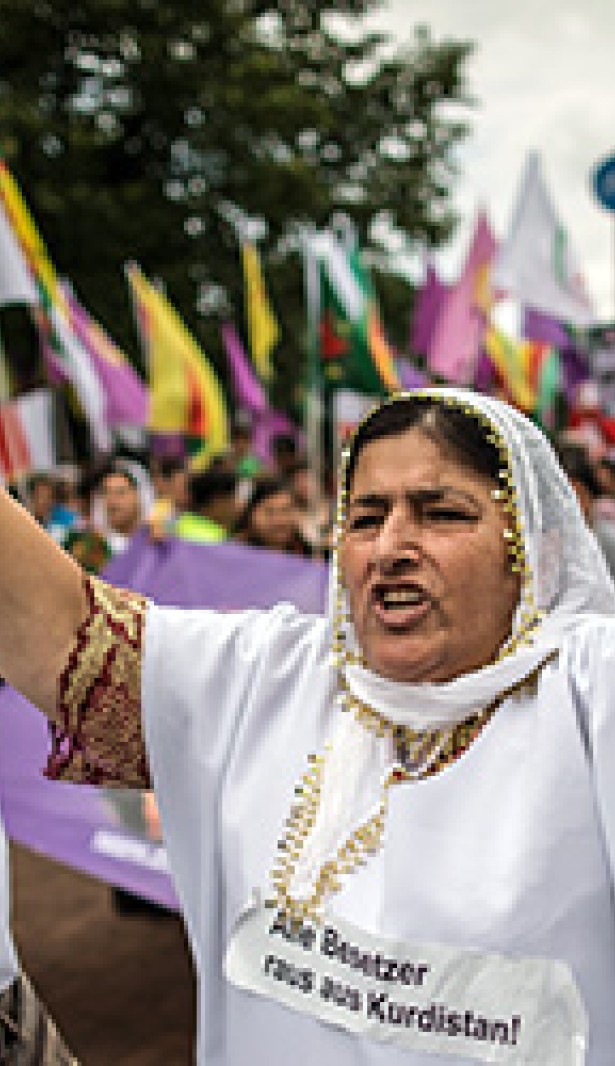Minority rights must be top priority in humanitarian crisis
05 January 2017

“As a religious minority in Iraq, Yazidis are not accepted and not protected. What is happening to my community is a human rights crisis,” said Erivan Mahdi, 24, a Yazidi woman working in a camp in Iraq’s Kurdistan region that is sheltering displaced Yazidis who have fled attacks by the Islamic State (ISIS).
Yazidis are a religious community of some 400,000 people who live in the Sinjar region of northern Iraq. ISIS militants attacked Sinjar in 2014, killing thousands of Yazidi men and taking thousands of women captive. A UN investigation in June 2016 denounced the atrocities as genocide and said ISIS has continued targeting Yazidis since 2014 with an aim to “erase their identity.”
The attacks have driven Yazidi communities into camps for internally displaced people (IDPs). Mahdi works with International Volunteers Organization in IDP camps for Yazidi women who have escaped from ISIS captivity, families who have been divided and children who have lost their parents.
“There are still more than 3,500 Yazidi women in the hands of ISIS, and we don’t know where they are,” said Mahdi. “ISIS has taken thousands of Yazidi children who are being trained to kill in order to create a new generation of ISIS fighters.”
Mahdi participated in a three-week minority fellowship programme of the UN Human Rights Office in Geneva. The programme provides training for young people from national, ethnic, religious and linguistic minorities on the UN human rights system of protection to aide them in their work to advocate for minority rights in their home countries.
Humanitarian emergencies in Iraq, Syria, South Sudan and other conflicts continue without relief, trapping civilians in conflict zones without food, water and medical supplies. In many conflicts, minorities in particular are targeted for abuse..
“Today’s conflicts are frequently driven by discrimination – by sectarian ideologies that seek to dominate or crush other identities,” said UN High Commissioner for Human Rights Zeid Ra’ad Al Hussein, addressing a recent forum held by the UN Human Rights Office to address the plight of minorities in humanitarian emergencies.
Zeid called for broader engagement and coordination among governments, UN entities, regional organizations and NGOs to respond effectively to provide greater protection for minorities amid escalating crises.
Participants at the forum discussed the disproportionate impacts on minorities in times of humanitarian emergencies caused by conflict, disaster and pandemics.
“It is critical to consider the situation of minorities who are disenfranchised, at heightened risk and with fewer resources for protection and action,” said Christine Knudsen, director of the Sphere Project, a voluntary initiative to promote a people-centred approach to humanitarian aid during emergencies. “Humanitarian assistance must shift from a pure needs-based approach towards a rights-based approach.”
Discussions focused on drafting recommendations to respond effectively to the needs of minorities in situations of humanitarian crises, including actions for states, intergovernmental and non-governmental humanitarian actors to ensure non-discrimination and promotion of minority rights at all stages of any humanitarian emergency.
Addressing the challenges confronting minority communities in situations of conflict, Mahdi urged forum participants to call for continued attention to the plight of the Yazidis in Iraq. “I ask the international community to stand with us to defend us, to help free the Yazidi women taken by Isis and to stop the killing of my people.”
5 January 2017

